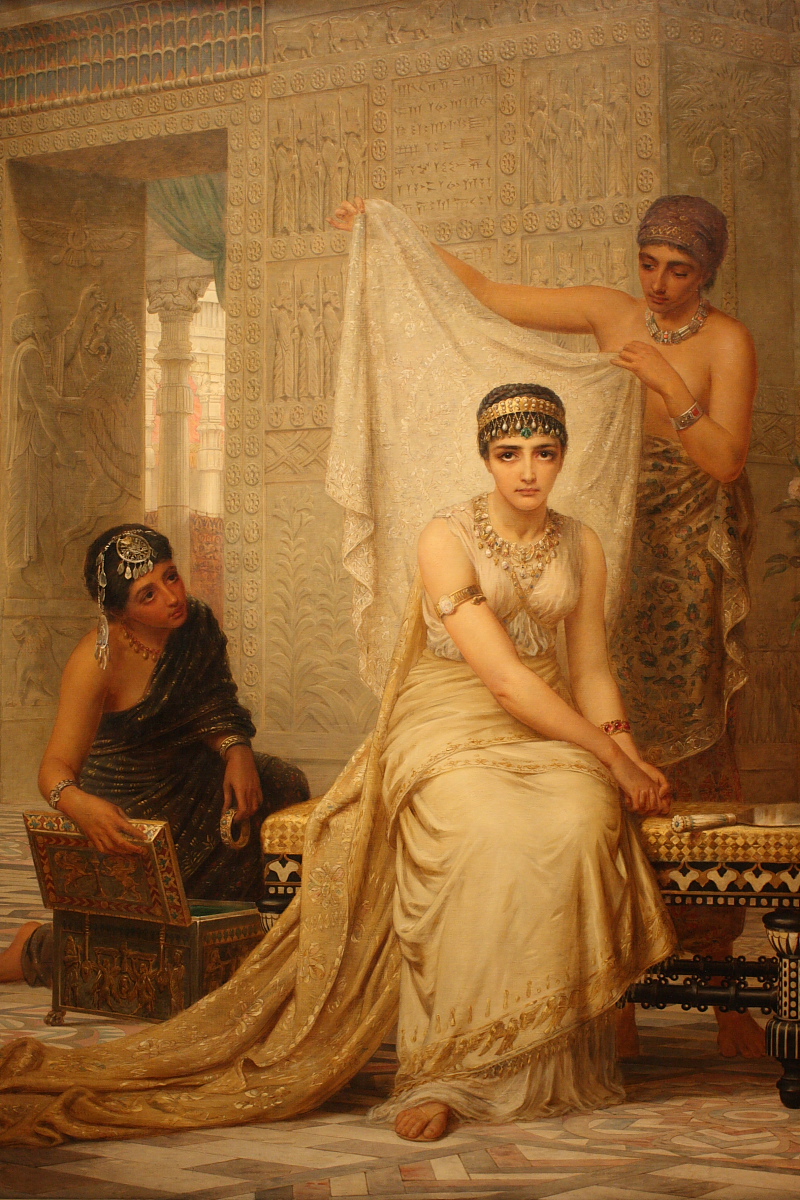 "Who knows? Perhaps you have come to royal dignity for just such a time as this." (Esther 4:14b)
"Who knows? Perhaps you have come to royal dignity for just such a time as this." (Esther 4:14b)Why me, God?
I'm just a girl,
longing to belong -
why let me be uprooted,
torn from those I love?
Why take me to this foreign place
where I know no one?
Why me, God?
I'm just a girl,
longing to be loved -
why place me in the power
of such a cruel man?
Why take away my freedom,
imprisoned in his hand?
Why me, God?
I'm just a girl,
longing for peace -
why this burden on my shoulders?
Why this responsibility?
Should I pay with my own life
to buy my people free?
It's me, God -
I am a queen
placed here by you
for just this purpose,
for such a time as this.
My life makes sense
in your perfect plan -
so give me strength to do
what you have called me to.
______________________________________________________________
[9. March 2016]
We can look at Esther's story as a "rags-to-riches" story about a girl rising from orphaned nobody to queen of a huge empire (comprising 127 provinces) - or we can read it as the story of a girl who was forcefully taken from her family without any say in the matter, to marry a man who we found out in the first chapter has a rather volatile temper. Esther hardly speaks a word for much of the first part of the book. She has no say in what is happening to her. So despite her rise to queenship, I believe Esther is actually in a situation of suffering. She is practically imprisoned, unable to return to her family (though she is still able to communicate with Mordecai) and (on pain of death) forbidden from approaching her husband on her own initiative, bound into the rules and restrictions of palace life. So I can very well imagine her asking: "Why me?"
One of my favourite parts of the book of Esther is chapter 4, where Mordecai moves Esther to stand up for her people. The Jews are in danger: a day has been set on which they are all to be exterminated. Mordecai wants Esther to use her position with the king to save the Jews. And this is the point where all that has gone before, Esther's separation from her family and her marriage to the king, is given some sense: "Who knows? Perhaps you have come to royal dignity for just such a time as this." (Esther 4:14)
Esther is a very interesting book in that it nowhere mentions God directly. However, God is hinted at in statements like this one. He is active in the background, behind all the occurrences and the actions of individuals, behind some of the things we don't understand. Mordecai explains what Esther has been going through: it has all had a purpose, it has led to this point in which Esther has a vital role to play for her people. She has become queen for a reason, she has been given this responsibility for a reason, and so she should not be afraid to act.
I suppose all this wasn't clear as it was occurring. Esther did not see God's purpose when she was taken away from her adoptive parents. She did not see God's purpose when she ended up married to the Persian king. But sometimes we come into a situation where God's leading hand becomes visible, where things become clear. Often we only see clearly in hindsight.
It's not always wise to tell someone, "Oh, your suffering has a purpose and God has a plan." They might not understand it at the moment. We need wisdom and discernment when it is right to help someone who is suffering to view their suffering in the larger context of God's guidance. But I do believe it can be comforting and helpful to recognise: what has happened to me has a purpose. And from experience I can say that being entrusted with a task is one of the greatest comforts one can be given.
Picture by Edwin Long.
No comments:
Post a Comment